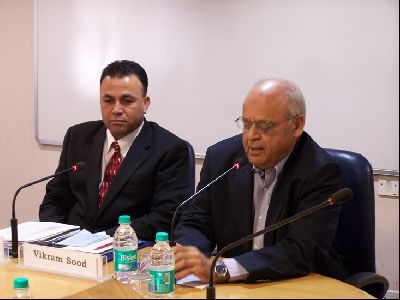Baltimore IMC : http://www.baltimoreimc.org
Commentary :: Activism : Asia : Civil & Human Rights
'Pakistan is the problem in Balochistan'
Source: www.observerindia.com/cms/sites/orfonline/modules/report/ReportDetail.html
06 November 2009
Balochistan remains under the occupation of Pakistan and the international community must step in to prevent the atrocities being committed on the Baloch people. This was one of the conclusions drawn at a round-table discussion organised by Observer Research Foundation on November 5, 2009.
The meeting was attended by several well-known academics, journalists and experts on Balochistan. Two special guests at the discussion were Dr. Wahid Baloch, President Baloch Society of North America and Mr. Munir Mengal, a Baloch Chartered Accountant based in France.
The meeting discussed the atrocities committed by the Pakistan Army and its intelligence agency, ISI, on Baloch people since 1948. It was pointed out that Baloch professionals were being targeted regularly in Pakistan. Several Baloch leaders, highly educated, were kidnapped, tortured and killed ruthlessly. The brutal killing of Nawab Akbar Khan Bugti was referred to highlight the extent of atrocities being committed by Pakistan.
Many speakers argued that the Baloch struggle against the Pakistan State is based on a secular ideology, and since the killing of Nawab Akbar Bugti, more and more educated professionals – doctors, engineers, chartered accountants- were actively taking over the ‘resistance’ to a point where the traditional community leaders or the Sardars no longer control the direction and tempo of the movement.
One of the speakers said Balochistan was forcibly occupied by Pakistani military forces in 1948 after the Nawab of Kalat refused to accede to the demands made by Muhammad Ali Jinnah. Jinnah, he said, was in fact the attorney appointed by the State of Kalat to argue its case for independence. The speaker said Balochistan remained a sovereign State for almost a year before it was occupied by the Pakistani forces.
Other speakers referred to the systematic campaign of torture, kidnappings and other atrocities against both Baloch men and women. Several specific incidents and instances were sighted to buttress the argument.
Talking about the presence of the Quetta shura (leadership element of the Afghan Taliban allegedly given living under state protection in the capital of Balochistan), speakers pointed out that non-Pashtuns were not even allowed to enter certain parts of Quetta. Since the Afghan Jihad days, radicalised Afghan refugees were settled in the area. Quetta was today a fully Talibanised center of operations.
Realising the harsh geo-political reality against their movement, it was pointed out that the ultimate goal of Baloch struggle was to seek a ‘Greater Balochistan’ comprising territory on either side of the Goldsmith Line in Pakistan as well as Iran. The Baloch movement had no links with Jundallah, a terrorist group which Iran holds responsible for the recent bomb attack in Sistan Balochistan province.
Views
Information
Search
This site made manifest by dadaIMC software


